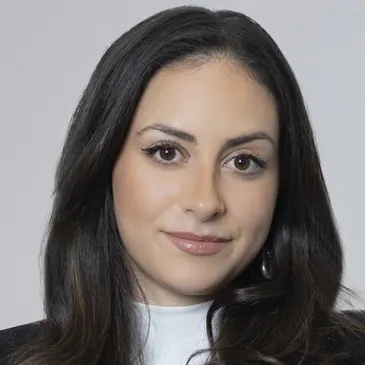I have a hot take to share as an ESG Director—but as our planet gets hotter and natural disasters keep devastating communities, I don’t think I have a choice.
Climate is my passion. Last month, I attended Climate Week 2024 in New York. While the programming was thoughtful, I had multiple conversations with fellow attendees about how we, as practitioners in the space, feel like we’re not making as much of an impact as we’d like to.
Something has to change.
Carbon offsets alone aren’t the answer to addressing climate change. But inaction while we come up with more impactful solutions isn’t either. Many of the VC investments in promising climate tech won’t deliver results, though that isn’t a reason to stop trying. Given what’s perceived as skepticism at worst and indifference at best to the issue of climate change, we as practitioners can’t be the ones to “agree” with our “opponents.” We can’t give climate change deniers an excuse by undermining our own efforts to solve genuine existential threats.
But as passionate practitioners driven to create a healthy environment for all of us to thrive, we can’t afford to not be blunt.
For all the ideas shared during Climate Week, how many were fresh? The week was filled with inspiring, hopeful talks around the future—but it ultimately felt like an echo chamber. We continue to hold the same conversations with the same people in cities like New York, San Francisco, and London. Everyone leaves feeling buoyant, yet we still see greenhouse gas levels climb at alarming rates, and two massive hurricanes—Helene and Milton—have served as almost immediate and urgent reminders that the impacts of climate change are already happening.
As practitioners in the climate space, it’s our mission and duty to find solutions that will actually move the needle for tomorrow. Here’s my challenge to my peers over the next 12 months:
Leave the echo chamber
A few years ago, I worked on a project that involved reviewing state climate action plans—and some of the most aggressive, ambitious strategies came from the least expected places. We need to actively seek out opportunities to discuss these topics where you wouldn’t expect them to thrive.
I recently came across a LinkedIn post from Philip-Michael Weiner, founding partner at Recapture, that deeply resonated. In discussing his move from San Francisco to Tulsa, Oklahoma, Weiner makes the point that he “went from chatting with VCs in WeWorks to sitting in boardrooms with oil and gas executives—companies with hundreds of millions of tons of emissions—and they told us, ‘You’re the first people to walk in here and talk about profit and climate change.’”
Oklahoma is known for its oil and gas production, yet the energy grid in Tulsa is around 60% renewable. Forty-seven percent of the state’s total electricity production comes from renewable sources. Invite-only events in the world’s major cosmopolitan cities often exclude those in the industries that most need to evolve or those making meaningful progress in unlikely places from the conversation. It’s time we democratize the conversations and include communities and change makers beyond the obvious.
Prioritize people and resilience in our rhetoric
Empathy is a powerful tool. When people see themselves in another’s position, they’re more likely to care and do what they can to make a difference. This is especially true in the aftermath of climate disasters, when visible human impacts lead to rapid change:
- Hurricane Maria prompted much-needed grid modernization for Puerto Rico.
- Pacific Gas and Electric, in response to California wildfires, developed a wildfire mitigation plan with added investment in renewable energy projects.
- Hurricane Harvey prompted Walmart to launch Project Gigaton, an initiative to cut one billion metric tons of emissions from its supply chain by 2030. The company reached its goal six years early.
Prioritizing human stories and the power of resilience in our framing and design of climate initiatives expedites meaningful progress and helps the urgency of our work shine through. Otherwise, executives and politicians may gloss over another call to “save the planet”—even if that’s exactly how dire the situation is.
Be more pragmatic in our efforts
As much as I’d love for every person to be as passionate about climate change as I am, I accept the fact that won’t be the case. Some have too many competing priorities, but we can still do our best to meet people where they’re at. By finding a link between our ESG efforts and their priorities—that one side of an issue where they can’t look away—we can start bridging the gaps. Progress, no matter how small, is better than stagnation.
Language is also important in how we position our efforts and broaden people’s thinking. AlixPartners’ CEO, Simon Freakley, recently touched on this concept with his thoughts on ESG as a term. As he writes, “a more pragmatic and less politically-charged approach to responsible and sustainable business practices is one I believe most business executives—and a majority of their stakeholders—will support.”
The road ahead
My aspiration is that every time I work with a client, we’re designing and implementing programs that bring about clear, tangible progress with respect to climate; that the results will inspire a call from an unlikely client partner; and through thoughtful discussions and strategizing, we develop meaningful solutions. Less talking, more action.
Though when we do talk about these initiatives—can we at least choose different cities? Maybe I’ll see you at Climate Week Tulsa 2025.

